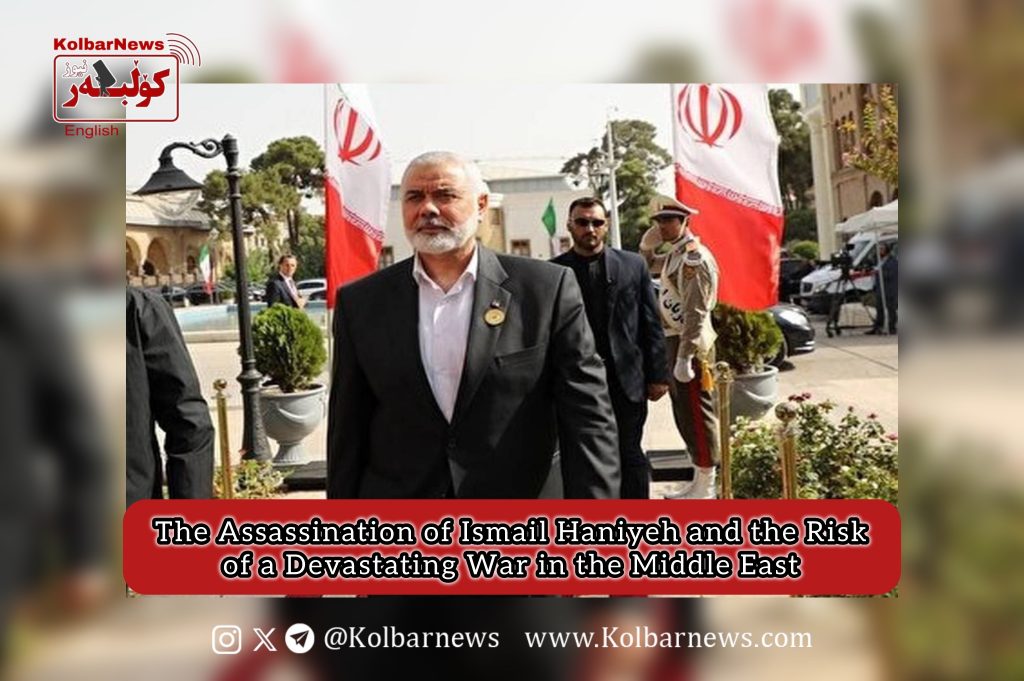
In its latest venture, the Israeli government has heightened the risk of a devastating war in the Middle East by assassinating Ismail Haniyeh, the political leader of Hamas, in the heart of Tehran amidst rising tensions with Hezbollah in Lebanon. Israel deliberately chose the time and place for this assassination, selecting Tehran to undermine the security and intelligence capabilities of the Iranian regime, display its own power, and shatter Iran’s illusion of regional dominance. This tactic is reminiscent of previous actions by Israel, such as the assassination of Iranian nuclear scientists, theft of nuclear files, and explosions at Natanz facilities. However, the killing of Ismail Haniyeh, who was a guest of the Islamic Republic at the inauguration ceremony of the new president, is particularly significant for Iran, comparable to the assassination of Qassem Soleimani, for which the Iranian Supreme Leader blamed the Iraqi government for failing to protect its guest.
The Israeli government believes that the Islamic Republic lacks the capability for a full-scale, long-term war with Israel and the US. By humiliating Iran’s intelligence and security apparatus, Israel aims to curtail Iran’s regional ambitions with American support and discredit it in the eyes of its proxies. However, should Iran not tolerate this humiliation, a retaliatory adventure cannot be ruled out.
For over ten months, Israel has been bombarding the densely populated Gaza Strip, destroying homes and killing nearly 38,000 people, most of whom are children, women, and elderly. Despite these atrocities, Israel has not achieved its objectives and faces political and social pressure from global public opinion and even some allied governments, including some in the US. In this context, escalating regional war or maintaining a warlike atmosphere is seen by the extremist and criminal elements in Israel’s cabinet as a way out of the current stalemate in Gaza. Furthermore, a significant portion of the Israeli population demands Netanyahu’s resignation and general elections. Netanyahu, facing potential imprisonment due to his legal issues, uses the warlike atmosphere to stay in power by provoking Iran and Hezbollah.
Given these objective factors, the Middle East is akin to a powder keg ready to explode, with a serious risk of escalating into a devastating war. Regardless of the US’s willingness for such a conflict, Netanyahu is trying to increase American military presence in the region to ensure victory in the event of war. Thus, Israeli provocations to drag Iran into such a war, with the assassination of Ismail Haniyeh in Tehran potentially being one such pretext, should be taken seriously.
The Islamic Republic, committed to avenging Haniyeh’s assassination, might embark on military adventures to save face from this humiliation. Such warlike provocations, despite one party’s reluctance, could lead to a destructive war between these two governments. Whether limited or unlimited, such a conflict would bring catastrophic human and material losses, affecting the people of Iran, Israel, Lebanon, Syria, and the entire region.
The foreign policy of the Islamic Republic, formulated by Supreme Leader Khamenei and executed by the Quds Force of the IRGC, is steering Iran towards a catastrophe comparable to the eight-year Iran-Iraq war. The regime, having already devastated the lives of its people through severe poverty and numerous social harms, might welcome such a war as a last-ditch effort for survival. Preventing this war requires intensifying political and trade union struggles, expanding civil and social activities, and active public participation in politics. The cry of “No to a war that is reactionary and anti-people from both sides” must resonate throughout Iran. The future of the Iranian people must not be sacrificed to the adventurism of two right-wing governments in Iran and Israel.

